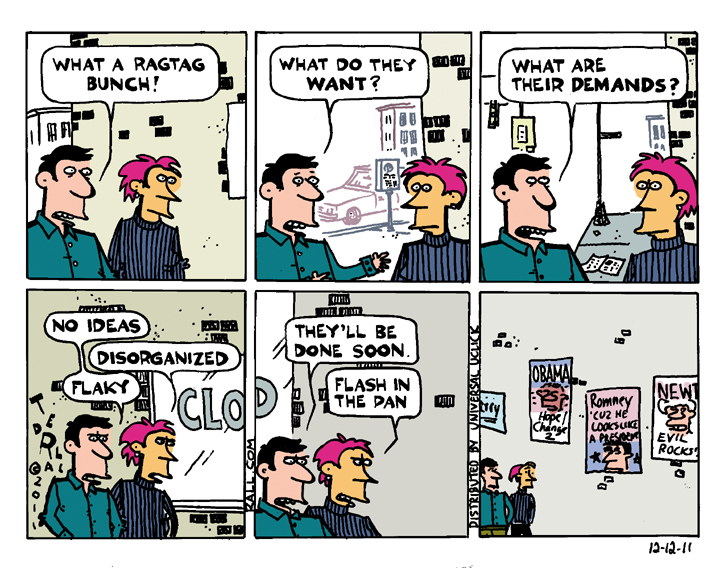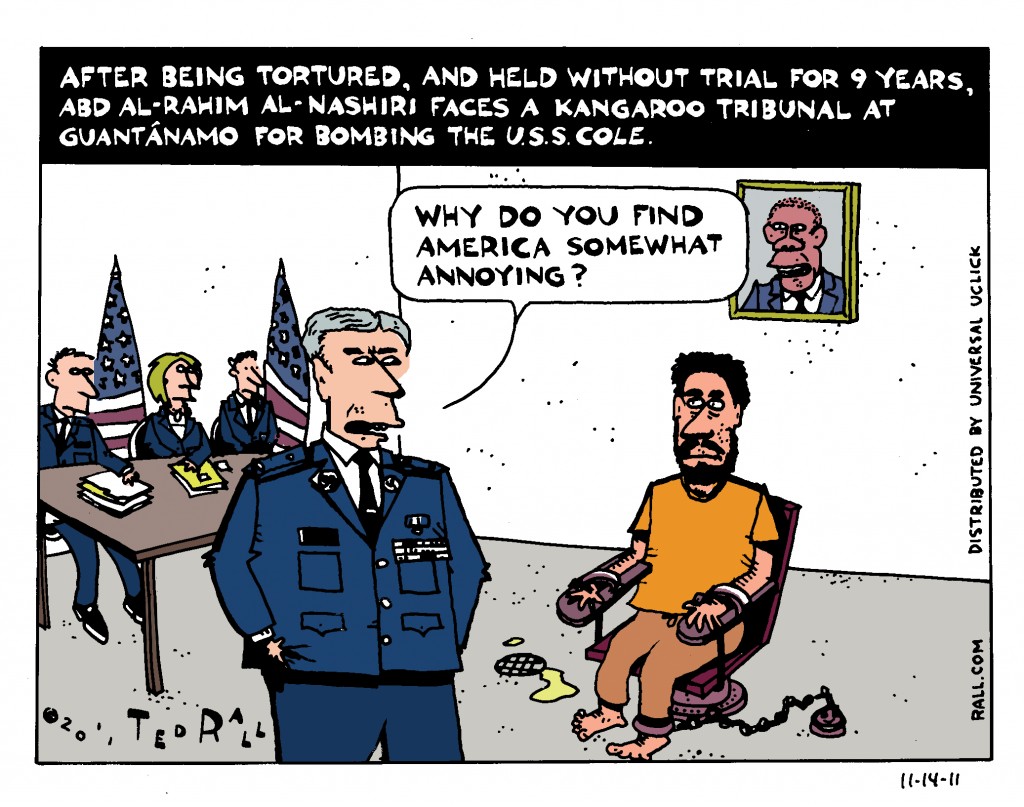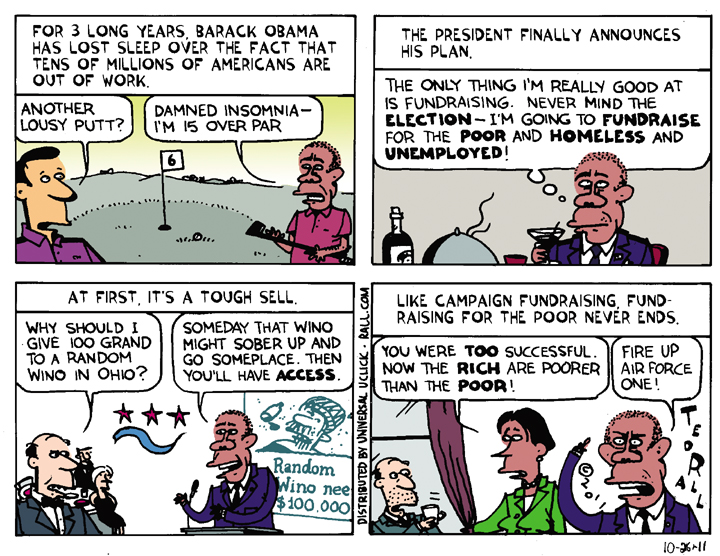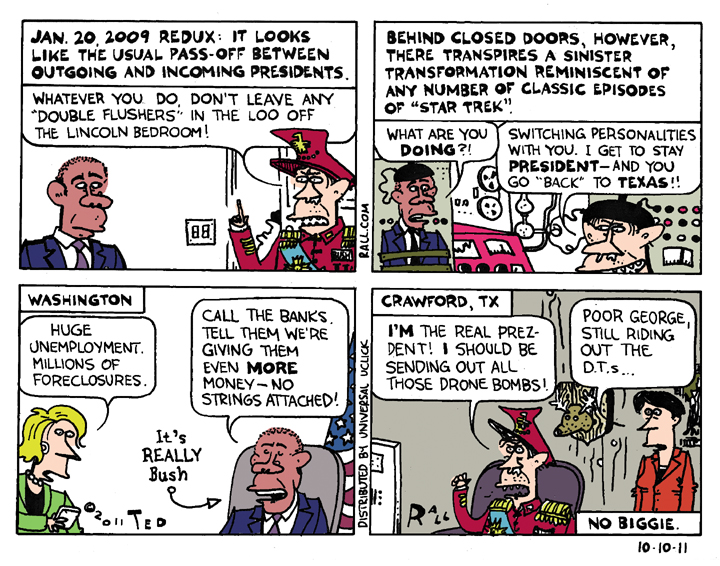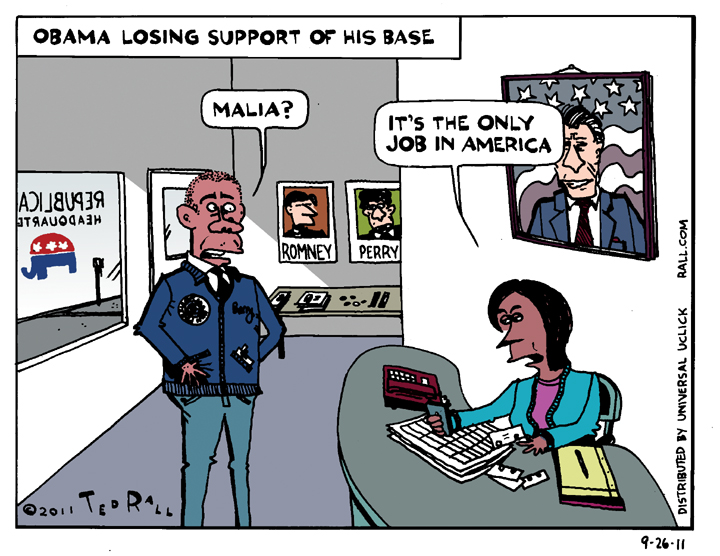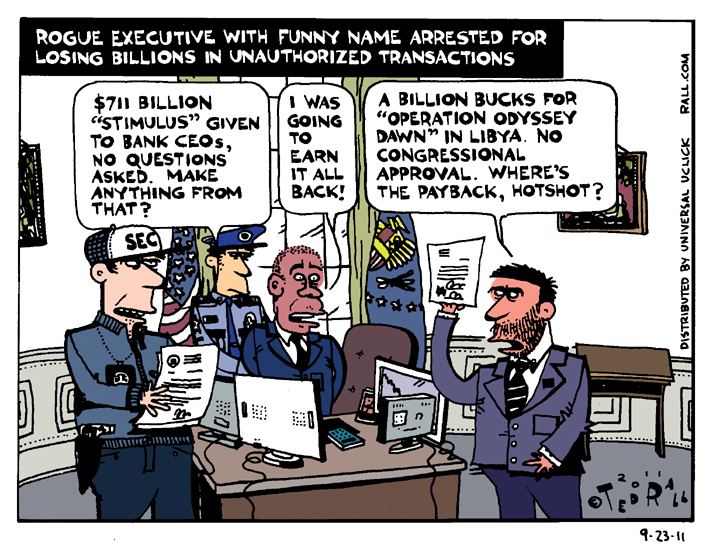In 2012 Politics Is In The Streets—Not the Voting Booth
The Occupy movement is lying low. The Tea Party has been completely absorbed into the Republican Party—just another interest group. The only politics anyone talks about is the presidential horserace.
Don’t be fooled. This is temporary.
Spring will come. Robins will sing. The Occupations will return, bigger, energized and more militant. Don’t be surprised if movements more militant, further to the Left than Occupy, begin to emerge.
What passes for politics—Democrats, Republicans, vacuous debates over mini-issues (flag burning, taxes, deficits, gays) as the big issues go ignored (jobs, income inequality, militarism)—will be finally, totally and irreversibly exposed as the irrelevant, distracting farce they are.
Politics is about to move into the streets. Where they belong. Where they live in countries whose citizens are engaged in the fight over their destinies.
There will be primaries and party conventions and debates. All part of a ridiculous sideshow.
Get ready. 2012 is set to become our year of revolution.
No more will we outsource our lives to 435 oily white men in Washington and 50 random idiots in the state capitals. We will demand what is ours: freedom, dignity, equality, justice, fairness, decency. We will vote with the signs we hold. We will debate our neighbors in parks, cafes and bars. Our elections will be held in clouds of pepper spray, amid swinging batons and flying rocks.
It’s on.
Can you feel it?
Not everyone can. Maybe their instincts have been dulled. That’s OK. People are different.
People who don’t understand that everything has changed are gearing up for a presidential election. Obama versus Probably Romney. Should they vote? If so, for whom? Should they canvass/work the phones/donate to the corporate candidate of “their” choice?
We who feel it need those who don’t feel it at our sides. We who are ready to emancipate humankind, we who are challenging the monstrous hegemony of a corporate state with bottomless pockets and an endless capacity for violence can’t afford to have millions of intelligent, otherwise like-minded allies distracted, sucked into the vortex of electoral BS. We need everyone—including the Obamabots.
They’ve been programmed with talking points. Here’s how you counter them.
Obamabot Talking Point: If I don’t vote for Obama, the Even Worse Republicans win.
Answer: So vote for Obama. Or don’t vote. It makes no difference either way. Voting is like praying to God. It doesn’t hurt. Nor does it do any good. As with religion, the harm comes from the self-delusion of thinking you’re actually doing something. You’re not. Wanna save the world? Or just yourself? That, you’ll have to do outside, in the street.
In a second term, a reelected Obama who doesn’t have to worry about running again will be free to do cool liberal stuff.
Lame duck, anyone? Second-termers are weak. Look at previous presidents’ second terms: Bush 2005-2009, Clinton 1997-2001, Reagan 1985-1989, Nixon 1973-1974. Not much got done. Lots of scandals. Second-termers do worry about the next election; they want a successor from their party (typically their veep). Anyway, there is no evidence—none—that Obama ever wanted to do cool liberal stuff. He never promised any. Dude was a conservative Democrat all along. In a second term he’ll be a weak conservative Democrat so preoccupied trying to hand off the baton to Biden that he won’t float anything risky.
Lesser-evilism, yo. Gotta do whatever it takes so that Romney/Gingrich/Ron Paul doesn’t get in. Gimme those Obama totebags!
In the short run, this is a valid argument. If we were only considering this one election, it would make sense to get Obama in again. Anything to keep those crazy Republicans out.
Over the long term, however, lesser-evilism falls apart.
When the argument for every Democrat is that he’s not a Republican, when every Democrat who wins proves a disappointing imitation of the Republicans his supporters were supposedly voting against, when the net result is a string of alternating Democrats and Republicans who basically do the same thing, especially on the major issues, this election isn’t some special “let’s hold our nose this one time” but merely part of a rancid continuum that we should be opposing with all of our strength and energy—something we can’t do if we’re out pounding the pavement on behalf of a man who is oppressing us just as surely as his so-called “enemies.”
(Ted Rall is the author of “The Anti-American Manifesto.” His website is tedrall.com.)
COPYRIGHT 2011 TED RALL

